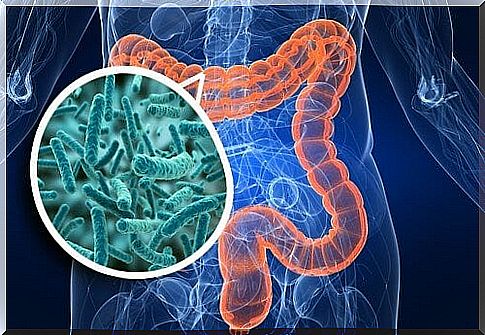Can Intestinal Bacteria Influence Our Emotions?

We have spent centuries lavishing the famous slogan ” Mens sana y corpore sana” . And although the meaning we now give it is far from the original, the truth is that research has shown in many different ways that a healthy body is the home of a healthy mind. Among the multiple proofs that support this we find the great research that in recent years has received the relationship between intestinal bacteria with the brain, especially with emotions.
Relatively recently, scientists found a surprising relationship between emotions and gut bacteria. In fact, gut bacteria have become a hot topic for researchers in recent years.
There is a close relationship between the gut and the brain
We all know that feeling of having “butterflies in the stomach”. Recent research is finding that there may actually be some truth to the metaphor. Since the early 21st century, scientists have been investigating the link between the bacteria that live in our intestines and mental health.
However, this is not new. Already in the early 20th century, doctors and scientists wrote a lot about how the contents of the colon – especially the harmful bacteria that live there – could contribute to fatigue, depression, and neuroses.

Although the first studies and hypotheses on the influence of gut bacteria on the brain were dismissed as pseudoscientific, in the last 15 years scientists have begun to reexamine the link between the gut and the brain. As more studies are done, researchers are discovering that the communication between the gut and the brain is actually a two-way street.
The brain influences both immune and gastrointestinal functions, which can alter the composition of the gut microbiome. In turn, bacteria in the gut produce neuroactive compounds, neurotransmitters, and other metabolites that can act in the brain. It has been found in mouse research that some of these compounds can also influence the permeability of the blood-brain barrier, which prevents harmful substances in the blood from entering the brain.
Gut bacteria and mood
Some years ago the scientific community began to study the specific effect that intestinal bacteria could have on emotions. For example, for some years it has been known that the microorganisms in our intestines secrete a large number of chemical substances, and that among these chemical substances are the same substances used by our neurons to communicate and regulate mood, such as dopamine, serotonin and gamma-aminobutyric acid (GABA). These, in turn, appear to play a role in intestinal disorders, which coincide with high levels of major depression and anxiety.
Additionally, we have long known that much of our supply of neurochemicals originates in the gut, where these chemical signals regulate appetite, feelings of fullness, and digestion. However, it was not until a few years ago that research has seriously taken into account the role that microbes play in the release of these very special chemicals.
The role of brain-gut-microbiota interactions
Recently, UCLA researchers have identified the gut microbiota that interacts with brain regions associated with mood and behavior. This may be the first time that the behavioral and neurobiological differences associated with microbial composition have been identified in healthy humans, as previous research had been conducted with animals.

This study reaffirms that brain-gut-microbiota interactions can play an important role in our health and even in our behavior. Previous research has already suggested that the microbiota, the community of microorganisms in the gut, can influence behavior and emotion.
But does the gut influence the brain or the brain in the gut? It is not clear whether it is the gut that is influencing the brain and its development or whether it is the brain that is influencing the gut. The researchers caution that it is difficult to draw causal conclusions – that go beyond association – as this is still a young field, in which most large-scale studies are still ongoing.
The importance of gut bacteria
Research on the influence of gut bacteria and its influence on brain function is ongoing. There is still much to discover and clarify. Until now, the different avenues of research have clarified that:
- The gut microbiota is a large population that is important for healthy metabolism and brain function,
- Gut-brain communication pathways include neural connections
- The gut microbiota is important during early development and can influence the “wiring” of stress circuits in the brain
- Probiotics, or “good bacteria,” can have a beneficial impact on mood symptoms
There is no doubt that the microbiota is an important modulator of health and emotions, which must be considered as part of a complex and multifaceted communication system, necessary to establish a healthy balance in brain development. So, while we are attentive to what science discovers, we better take care of our bodies and be attentive to the messages that it can send us.









